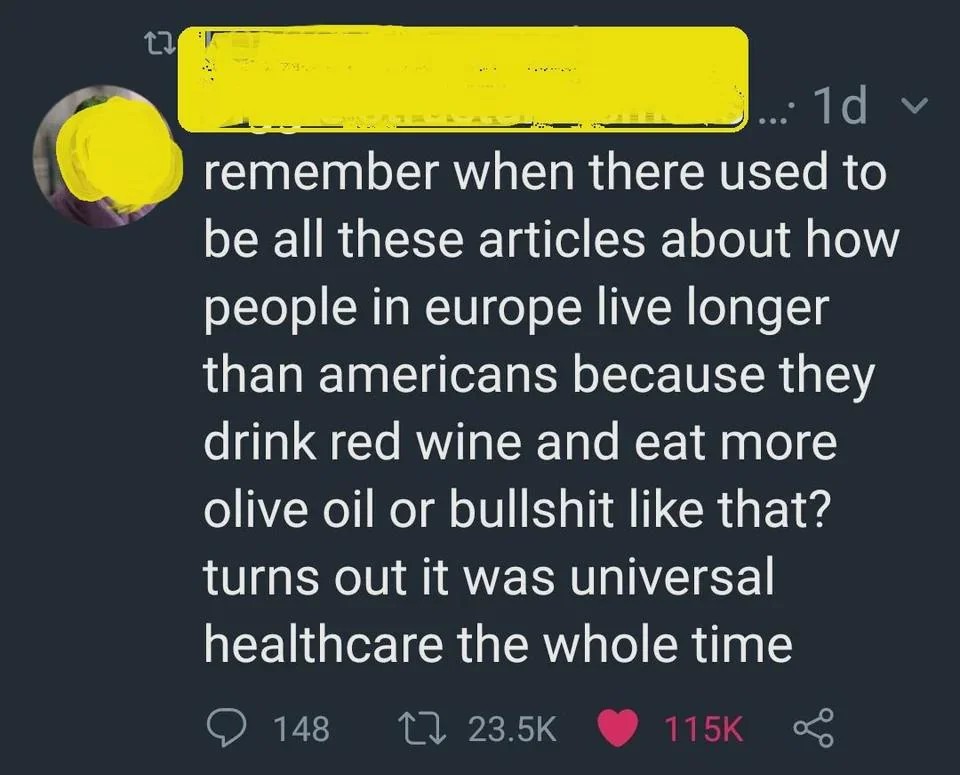this post was submitted on 07 Feb 2024
1546 points (98.3% liked)
Microblog Memes
6533 readers
4794 users here now
A place to share screenshots of Microblog posts, whether from Mastodon, tumblr, ~~Twitter~~ X, KBin, Threads or elsewhere.
Created as an evolution of White People Twitter and other tweet-capture subreddits.
Rules:
- Please put at least one word relevant to the post in the post title.
- Be nice.
- No advertising, brand promotion or guerilla marketing.
- Posters are encouraged to link to the toot or tweet etc in the description of posts.
Related communities:
founded 2 years ago
MODERATORS
you are viewing a single comment's thread
view the rest of the comments
view the rest of the comments

That study suggests salt is a settled issue and claims the only financial interests are food companies trying to make salt more acceptable. I don’t think it’s very good evidence for your argument.
Who would financially benefit from the salt recommendations being artificially low?
That's the issue I have. I think it can only be reputation and closely held beliefs
And likewise for high salt, there's not much benefit in that position
Well, with an artificially inflated RDA for salt, food companies can use more salt in their products without being labeled “unhealthy.” Salt, as a flavor enhancer and food preservative that stimulates thirst, makes food taste better, last longer, and potentially increases drink sales, all of which are profitable for food manufacturers and sellers. Going further, the medical system benefits from salt levels that are too low or too high, but much more from high levels, as that involves a longer treatment plan.
What do you mean by reputation and belief?